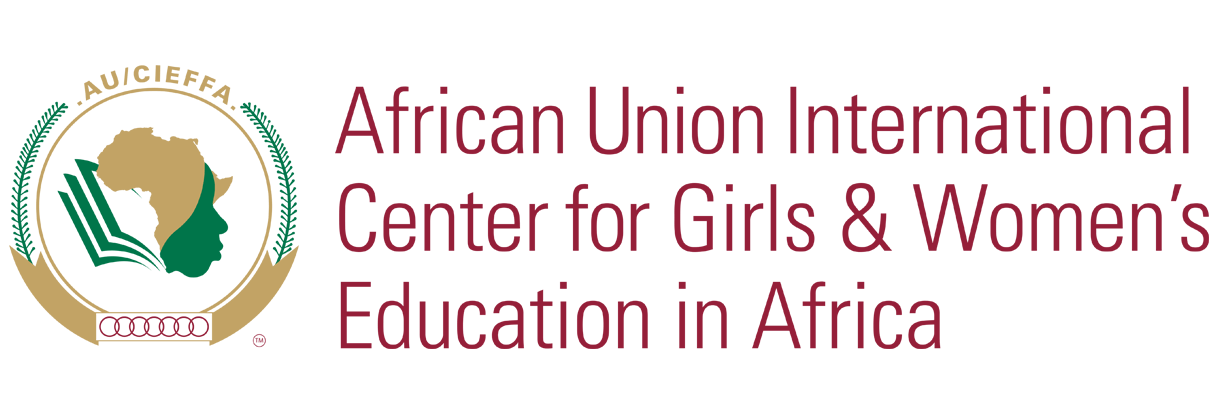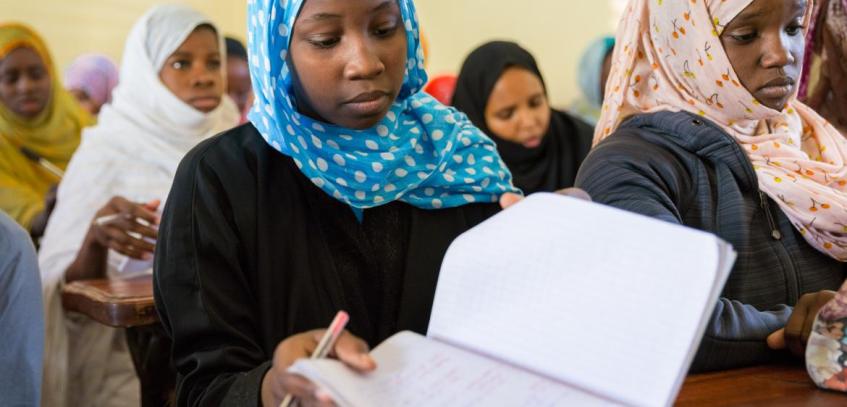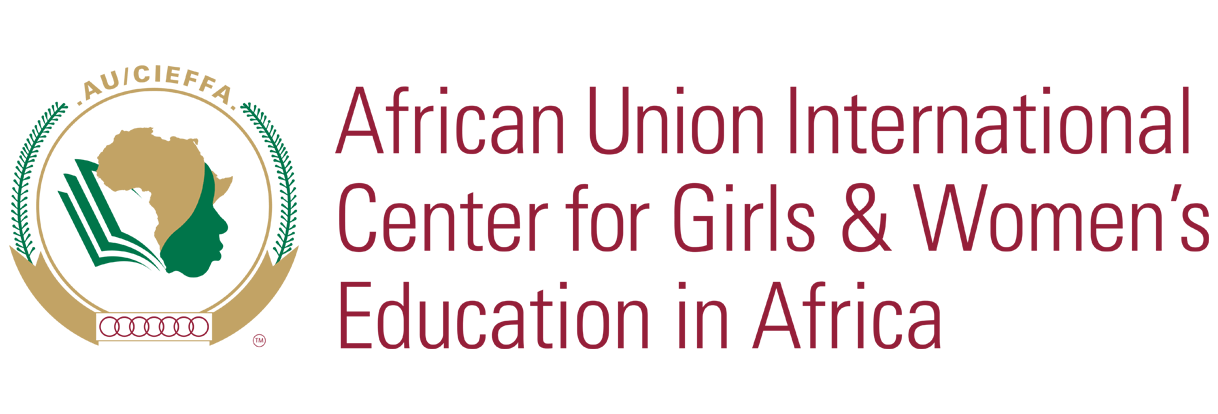1990: African decision makers put Girl's Eduaction at the centre of agendas
- In 1990, the international community met during a world conference on Eduction for in Jomtien (Thaïland) and adopted a declaration and a plan of action through which it committed itself to meet all citizen's fundamental educational needs. It pointed out the priority to ensure girls access to education and improve the quality of their training. Ever since, several other meetings followed, among which the pan African conference on girl's education took place in Ouagadougou in 1993. Its goal was to reach concensus from African decision makers on girls' education policies. The following proposals resulted from that conference:
- Adress policies pertaining to girls education in a multisectorial perpective; finance in- depth research work on the socio*cultural context of girls' education;
- Strengthen girls learning environment, and focus educational planning, administration and management on girls in order to meet their educational needs;
Institutionalize research at national and regional level.
In the framework of the follow up of that conference and considering the challenges to meet, Burkina Faso has porposed the creation of a West African Centre Wich will serve as a reference center 'to channel energies and guide actions on girls' and women's education, a resources, training and information center.
1995,1997 & 1999: Création of an international Centre for Girls and Women Education
In 1995,1997 and 1999, the Governement of Burkina Faso made the proposal lto UNSECO at the 28th, 29 and 30th sessions of the General conference. It was in 1999 that the 30th sessions of the General conference took note of the project and registered it in the 30/C5 as part of the Major Programme I, Action line 2. Burt instead of a West African center, the Director General of UNSESCO advised the creation of an International Centre for Girls' and Women's Education.
12-14 July, 2000: Proposals to Burkina Faso, Host Country
From 12 to 14 July, 2000, an international meeting held under the aegis of the UNESCO office in Ouagadougou brought together 46 experts in education and gender issues from 16 African countries, institutions and non-governmental organizations. They reflected upon the fundamental texts and the initial action Programme of CIEFFA and made proposals to Burkina Faso, the host country. The following countries and institutions attended the conference: Burkina Faso, Côte d’Ivoire, Mali, Niger, the Gambia, Senegal, Congo Democratic Republic, Kenya, Guinea Bissau, Ethiopia, Guinea Conakry, Ghana and Malawi. As Institutions and Non-Governmental Organizations, the following were present: UNICEF (United Nations Children’s Fund), UNESCO (United Nations Educational, Scientific and Cultural Organization), the World Bank, ECA (United Nations Economic Commission for Africa), Cathwel, WEAMU (West African Economic and Monetary Union), OPF (Pan African Organization of Women), FAWE (Forum of African Women Educationalists) and the UNESCO Institute for Education in Hamburg (Germany).
In January 2001, Burkina Faso set up a light coordinating team in application of the recommendations made by the experts’ meeting; In June 2001, Burkina Faso, the host country, put a temporary head office at the disposal of the center. Later following that, the Centre was allocated two plots of land, one for the permanent Headquarters and the other for the training premises.
July, 2004: CIEFFA as a specialized institution of the AU = AU/CIEFFA
In July 2004, the 3rd ordinary Conference of Heads of States and Governments of the African Union took the decision (« Decision Assembly /AU/DEC. 44 (III) ») approving the principle of making of CIEFFA a specialized institution of the African Union.
In September 2004, a Meeting of African Ministers of Education was held in Ouagadougou on AU/CIEFFA. During that meeting, the draft statutes were amended and transferred to the African Union Commission.
October 2005: AU/CIEFFA as Category II Centre
In October 2005, the 33rd General conference of UNESCO accepted AU/CIEFFA’s request to be admitted as a UNESCO category II center. The Agreement granting AU/CIEFFA that status was signed in Paris on 19 April 2006.
October 2006 : CIEFFA Budget
An amount of five hundred thousand dollars (500,000 USD) has been transferred from the AUC to CIEFFA.
26 April, 2007: Visit
Official visit of Prof Nagia Essayed, HRST Commissioner for the laying of the foundation stone of the AU / CIEFFA building.
2007: CIEFFA Statutes
Discussions within the department of HRST on the structures and statutes of CIEFFA.
5 March, 2008 : Headquarters agreement signed
On the 5th of March 2008, a Headquarters agreement was signed between the Government of Burkina Faso and the African Union Commission to establish its headquarters in Ouagadougou, Burkina Faso.
August 2008 : Legal Advice
Letter from the Legal Adviser explaining that the AU / CIEFFA does not need statutes
Oct-Nov 2008 : CIEFFA Audit
Organizational and financial audit of CIEFFA by the AUC
2009 : Structures Approval
Structures sent for approval to the PRC
2011 : Staff Recruitment
Recruitment process by the Department of Administration to recruit CIEFFA staff
Nov 2014 : CIEFFA Coordinator
Appointment of the CIEFFA Coordinator in Addis
Present:
The AU/CIEFFA continues to conducts activities that can help achieve the objectives of Education for All (EFA)and the Millennium Developpement Goals (MDGs) and Sustainable Development Goals (SDGs). These activities are especially related to the are of Gender and thr objectives of the Second Decade of Education for Africa.
The AU/CIEFFA is also thr Observatory of the African continent as regads to the education of girls and women. This statutes entrusts the centre with another mission, that of conducting activities on the situation of education and training of girls and women in Africa.










